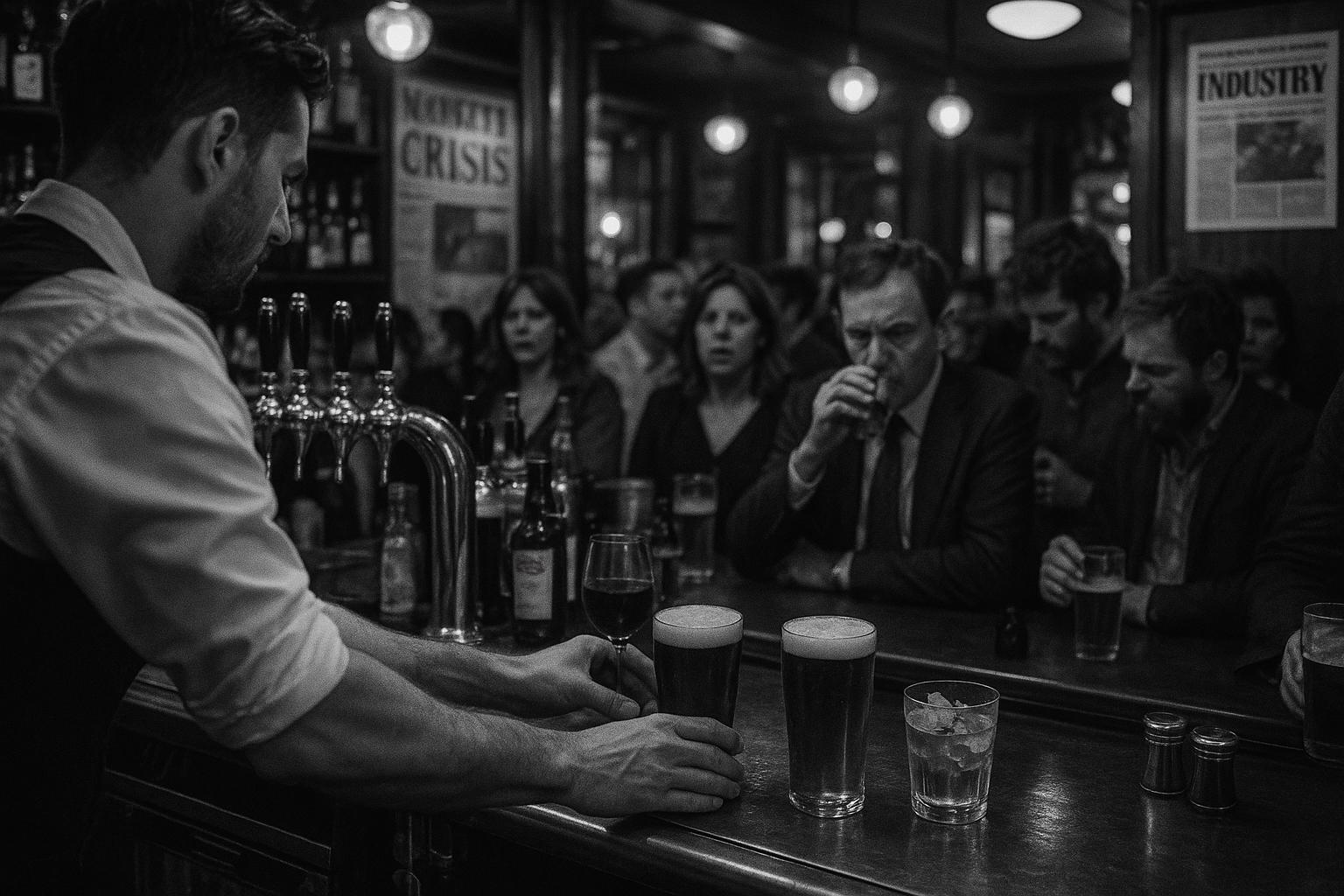A popular London pub chain has introduced an additional 4% service charge on drinks purchased at the bar, attributing the move to increased National Insurance taxes implemented by Chancellor Rachel Reeves. The Well & Boot in Waterloo station, one of nine Glendola Leisure pubs in London to adopt the surcharge—including venues such as The World’s End in Camden and The Fox in Shoreditch—has begun adding the levy automatically to food and drink bills. While labelled as "optional," the charge is applied by default unless customers specifically request its removal. This means a pint of beer, such as Camden IPA which normally costs £7.65, will rise by around 30p to £7.95 with the service charge included. The pub notifies customers of the fee through a small sign at the bar.
The imposition of this service charge follows significant changes to National Insurance contributions. In last year’s October Budget, Ms Reeves raised the employer National Insurance rate by 1.2%, from 13.8% to 15%, with the increase taking effect in April of this year. Simultaneously, the NIC threshold was lowered from £9,100 to £5,000 annually, increasing costs for many businesses. A spokesperson for Glendola Leisure told London Centric that the new service charge system was a "cost-effective way" to ensure staff receive gratuities amid these financial pressures. They added that in a challenging climate for hospitality, this measure helps look after staff and maintain quality customer experiences.
The decision comes amid widespread concern within the hospitality sector about rising operational costs. Research by The Morning Advertiser shows the average pint across the UK now exceeds £5, with London prices averaging around £6.10. The sector has suffered significant job losses, with UK Hospitality reporting nearly 70,000 positions were shed between October 2024 and May 2025 as businesses struggle to absorb increased levies and other cost pressures. Leading figures in hospitality have expressed alarm at the potential for further closures and job cuts if tax burdens continue to rise without government intervention.
The Chancellor’s broader fiscal strategy has drawn criticism from industry leaders. Over 200 sector representatives have warned that further planned increases in national insurance contributions could exacerbate the current challenges. The Financial Times highlights concerns that heightened employer NI rates, combined with reductions in business rates relief, threaten profitability and investment in pubs, cafes, and restaurants, many of which operate on tight margins. Some reports suggest discussions continue within the Treasury about introducing national insurance on employer pension contributions, potentially raising substantial additional revenue but adding to employers’ costs.
Despite the challenges, the government maintains that it is taking steps to support the hospitality industry. A government spokesman told The Telegraph that pubs, cafes, and restaurants are vital to communities. Measures cited include cuts to licensing costs, reforms enabling more venues to offer pavement drinking and al fresco dining, extensions to business rates relief, reductions in alcohol duty on draught pints, and a cap on corporation tax.
The introduction of the service charge at Glendola Leisure’s pubs has also reignited debate around tipping culture in the UK. Industry observers note that while some defend such charges as a necessary means of supporting staff in a difficult economic environment, others worry about the impact on customer experience and the viability of hospitality businesses already under strain. Glendola Leisure’s approach includes paying staff their share of the service charge through a Tronc scheme, which ensures gratuities go directly to employees.
As the UK government balances fiscal demands with support for businesses, the hospitality sector remains in a precarious position. The new service charges at pubs like The Well & Boot illustrate the tangible effects of tax policy on everyday costs for consumers and the strategies businesses are adopting to navigate these pressures.
📌 Reference Map:
- Paragraph 1 – [1], [2]
- Paragraph 2 – [1], [4]
- Paragraph 3 – [1], [3], [4]
- Paragraph 4 – [3], [4], [6], [7]
- Paragraph 5 – [1], [4]
- Paragraph 6 – [2], [5]
Source: Noah Wire Services
